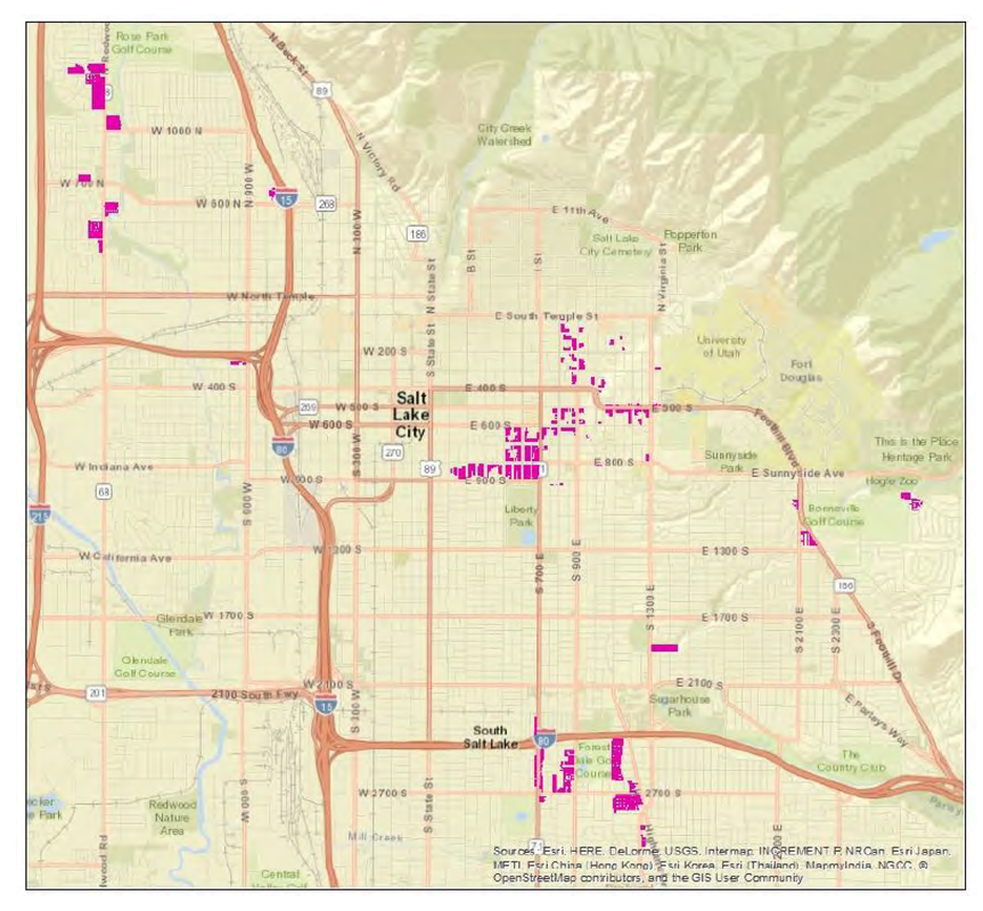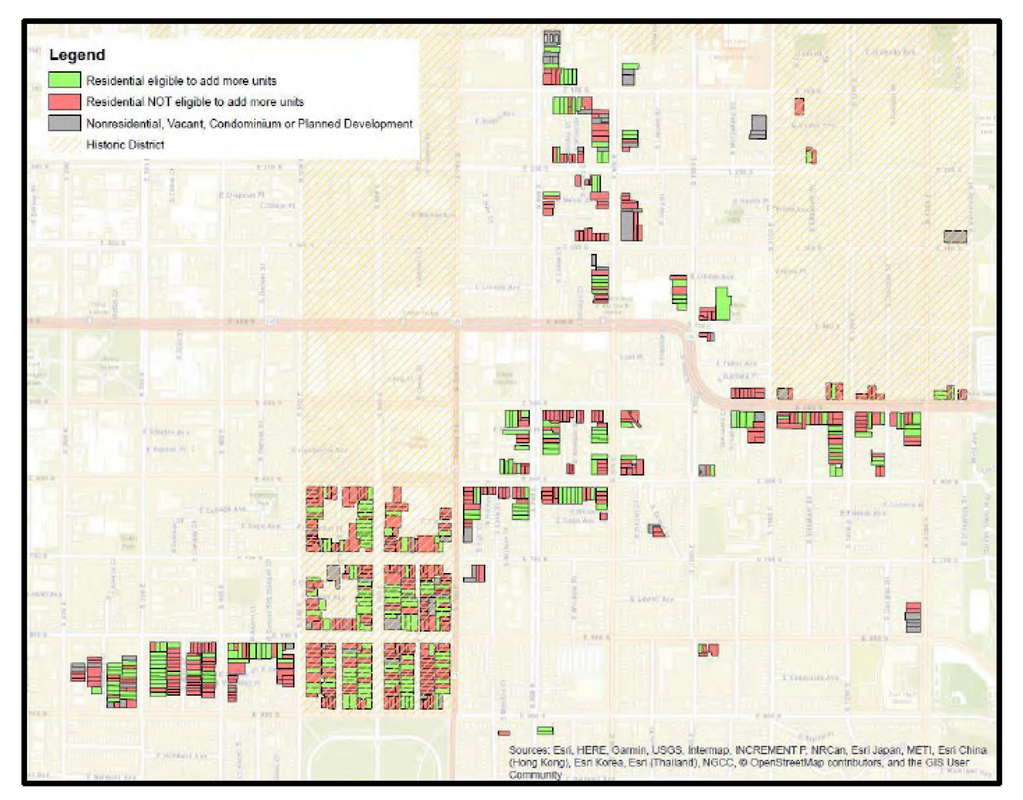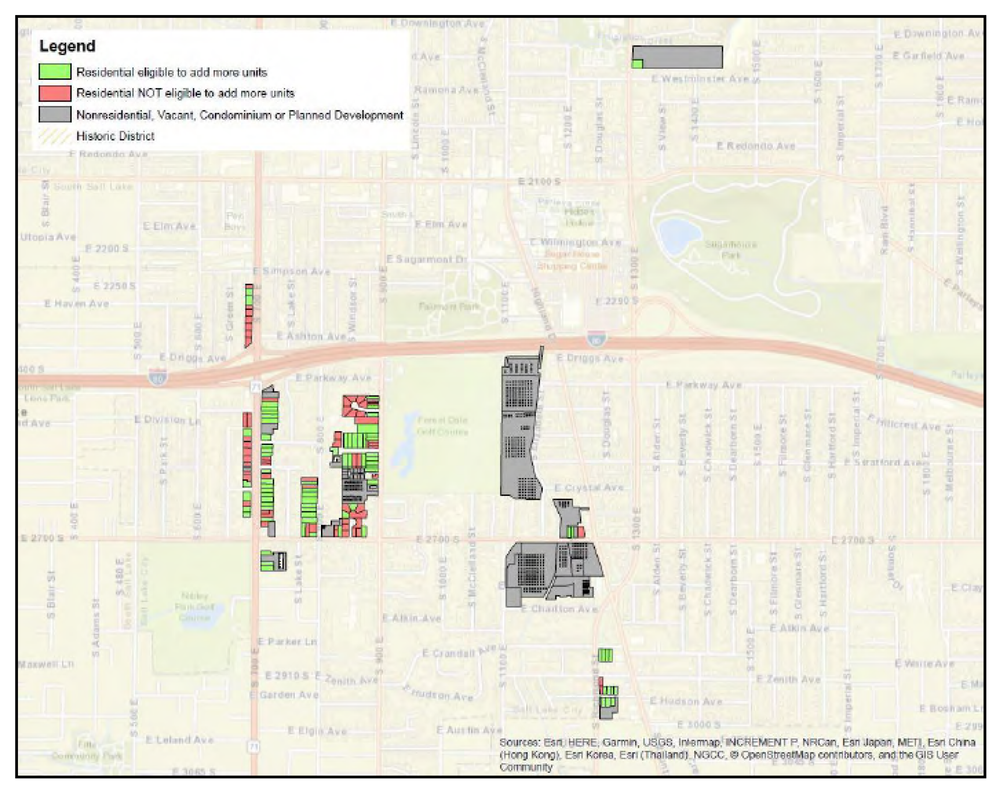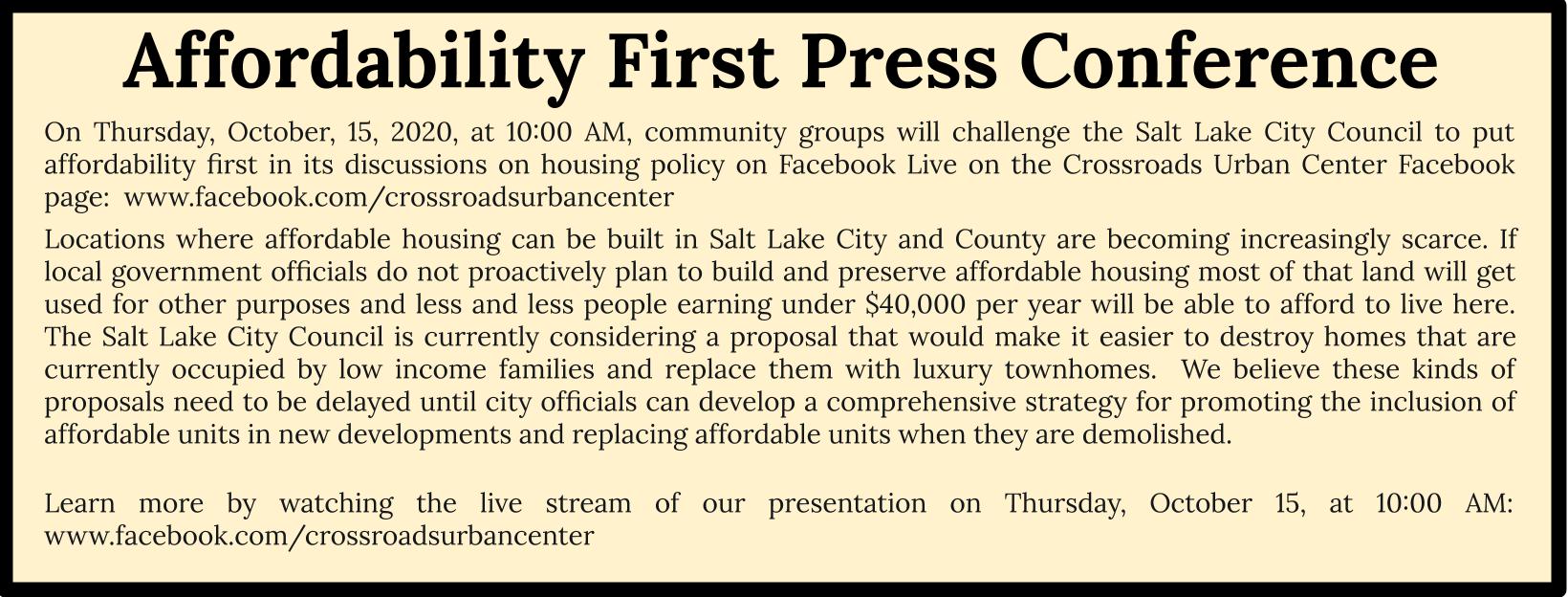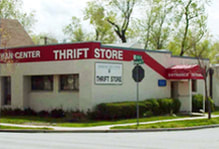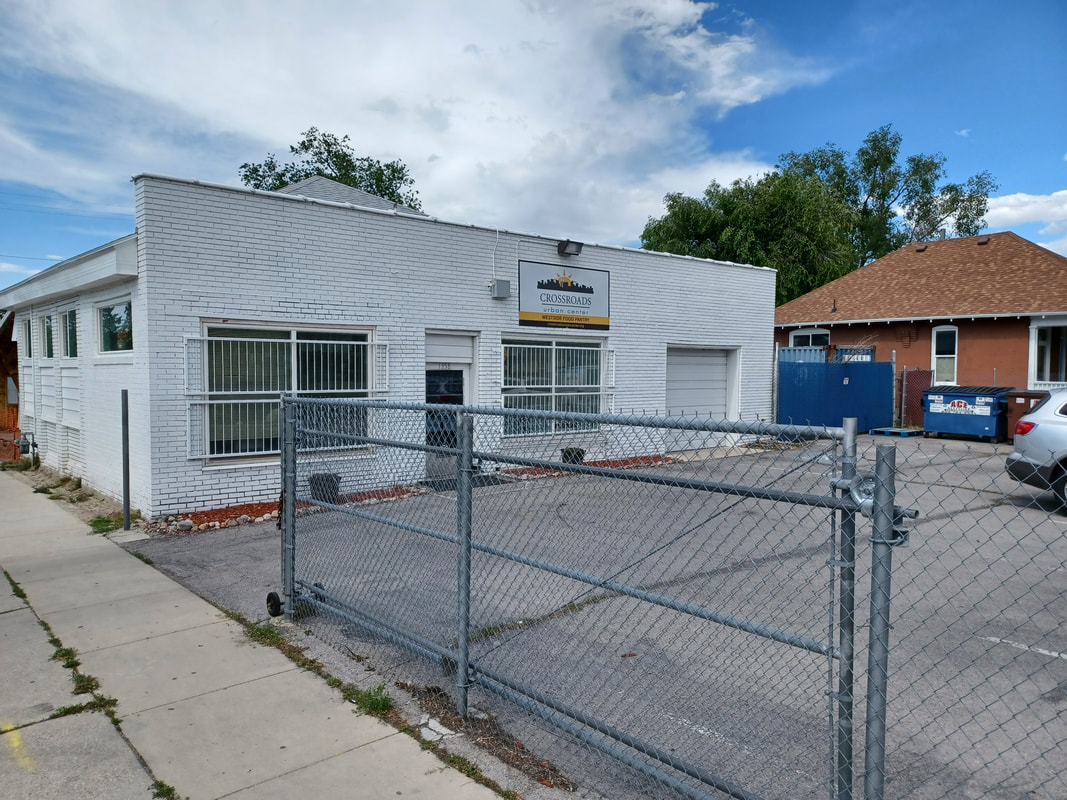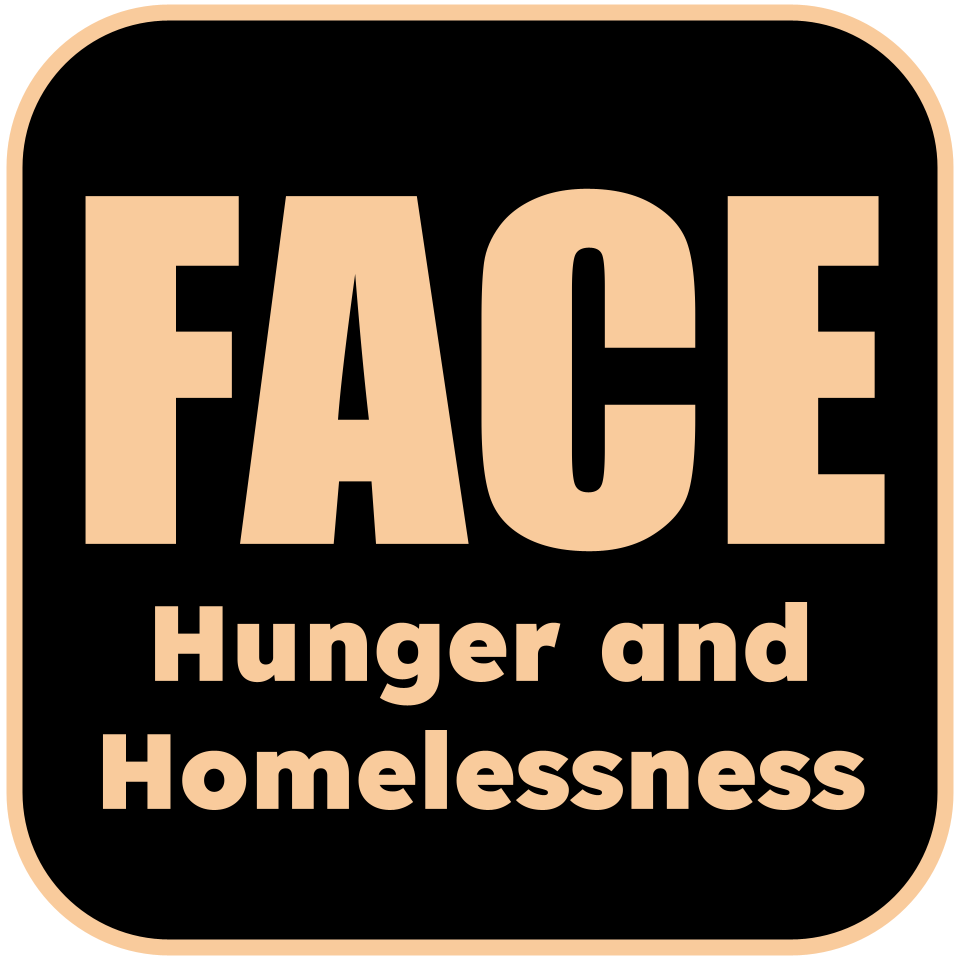CROSSROADS URBAN CENTER COMMENTS TO THE CITY COUNCIL
ON THE PROPOSED RMF-30 ZONING AMENDMENT – October 2020
Position Statement:
Crossroads Urban Center believes that the proposed RMF-30 zoning text amendment will spur the development of expensive new housing at the cost of existing, often “naturally occurring affordable housing (NOAH).” We are also concerned that approval at this time will relieve the pressure to require and incentivize inclusion of affordability in new housing development.
We are skeptical of claims that increasing housing density will increase housing affordability, or that increased housing supply will exert significant downward pressure on price appreciation. We have witnessed neither in this market. The “filtering” effect of higher income households into neighborhoods does not guarantee increased affordability, and may actually encourage further gentrification of neighborhoods.
Crossroads Urban Center supports actions to reduce barriers to housing density and affordability, as well as the stated goal of the zoning text amendment to “increase diversity of housing types for all income levels throughout the city.” We support the sections of the text amendment that encourage diversity of housing types, and also support the September 25th changes made to the lot area requirements in response to public comments.
Recommendations:
We note that the City acknowledges that “removing zoning barriers to housing development is a small piece of the overall housing affordability puzzle and should be implemented in conjunction with other affordability programs in order to make the most meaningful impact.” See: http://www.slcdocs.com/Planning/Planning%20Commission/2019/00313Memo.pdf
Specific Policy Examples:
Conclusion:
The City has failed to address this problem for years, and we are concerned that making major changes to the zoning code without addressing mitigation at the same time will result in more housing losses, lost NOAH, and lost opportunities to offset those losses through inclusionary requirements or in lieu fees.
Taking a bit more time now to coordinate the adoption of re-zoning and the affordable housing overlay proposals will mean better and more meaningful results for all city residents.
ON THE PROPOSED RMF-30 ZONING AMENDMENT – October 2020
Position Statement:
Crossroads Urban Center believes that the proposed RMF-30 zoning text amendment will spur the development of expensive new housing at the cost of existing, often “naturally occurring affordable housing (NOAH).” We are also concerned that approval at this time will relieve the pressure to require and incentivize inclusion of affordability in new housing development.
We are skeptical of claims that increasing housing density will increase housing affordability, or that increased housing supply will exert significant downward pressure on price appreciation. We have witnessed neither in this market. The “filtering” effect of higher income households into neighborhoods does not guarantee increased affordability, and may actually encourage further gentrification of neighborhoods.
Crossroads Urban Center supports actions to reduce barriers to housing density and affordability, as well as the stated goal of the zoning text amendment to “increase diversity of housing types for all income levels throughout the city.” We support the sections of the text amendment that encourage diversity of housing types, and also support the September 25th changes made to the lot area requirements in response to public comments.
Recommendations:
We note that the City acknowledges that “removing zoning barriers to housing development is a small piece of the overall housing affordability puzzle and should be implemented in conjunction with other affordability programs in order to make the most meaningful impact.” See: http://www.slcdocs.com/Planning/Planning%20Commission/2019/00313Memo.pdf
- The approval of the Zoning Text Amendment should be done in conjunction and concurrent with the proposed Affordable Housing Overlay zoning text amendments being drafted by Planning staff. It is our opinion that there is no urgency to leapfrog the RMF-30 amendment over the Affordable Housing Overlay amendment. This can be done either by delaying further consideration of the RMF-30 Zoning Text Amendment by the City Council until the overlay amendment is ready for approval or to delay the implementation date of the RMF-30 Zoning Text Amendment until the Affordable Housing Overlay Amendment is enacted.
- The approval of the Zoning Text Amendment should not take effect until the City has considered and enacted an updated, meaningful housing demolition mitigation or “No Net Loss” ordinance.
Specific Policy Examples:
- No Net Loss: Add affordable housing preservation regulations to the city demolition ordinance. A developer who destroys housing units has to attach an affordable housing preservation plan to their proposal documenting how many of the units were affordable to households at 60% and 30% of area median income and either include at least the same number of affordable units or place $10,000 per lost unit into a displacement fund and $100,000 per unit into the housing trust fund. Provisions should be made to allow the trust fund contribution to be made in the form of land that can be developed elsewhere, as well as units in other properties that can be made affordable instead.
- For the Affordable Housing Overlay: Make inclusionary zoning the default. If a developer wants to build a project where 20% of the units are not affordable to households at 60% of AMI or less, then they have to apply for a zoning variance after meeting with city housing officials to discuss ways the city can help them to include affordable units.
Conclusion:
The City has failed to address this problem for years, and we are concerned that making major changes to the zoning code without addressing mitigation at the same time will result in more housing losses, lost NOAH, and lost opportunities to offset those losses through inclusionary requirements or in lieu fees.
Taking a bit more time now to coordinate the adoption of re-zoning and the affordable housing overlay proposals will mean better and more meaningful results for all city residents.

